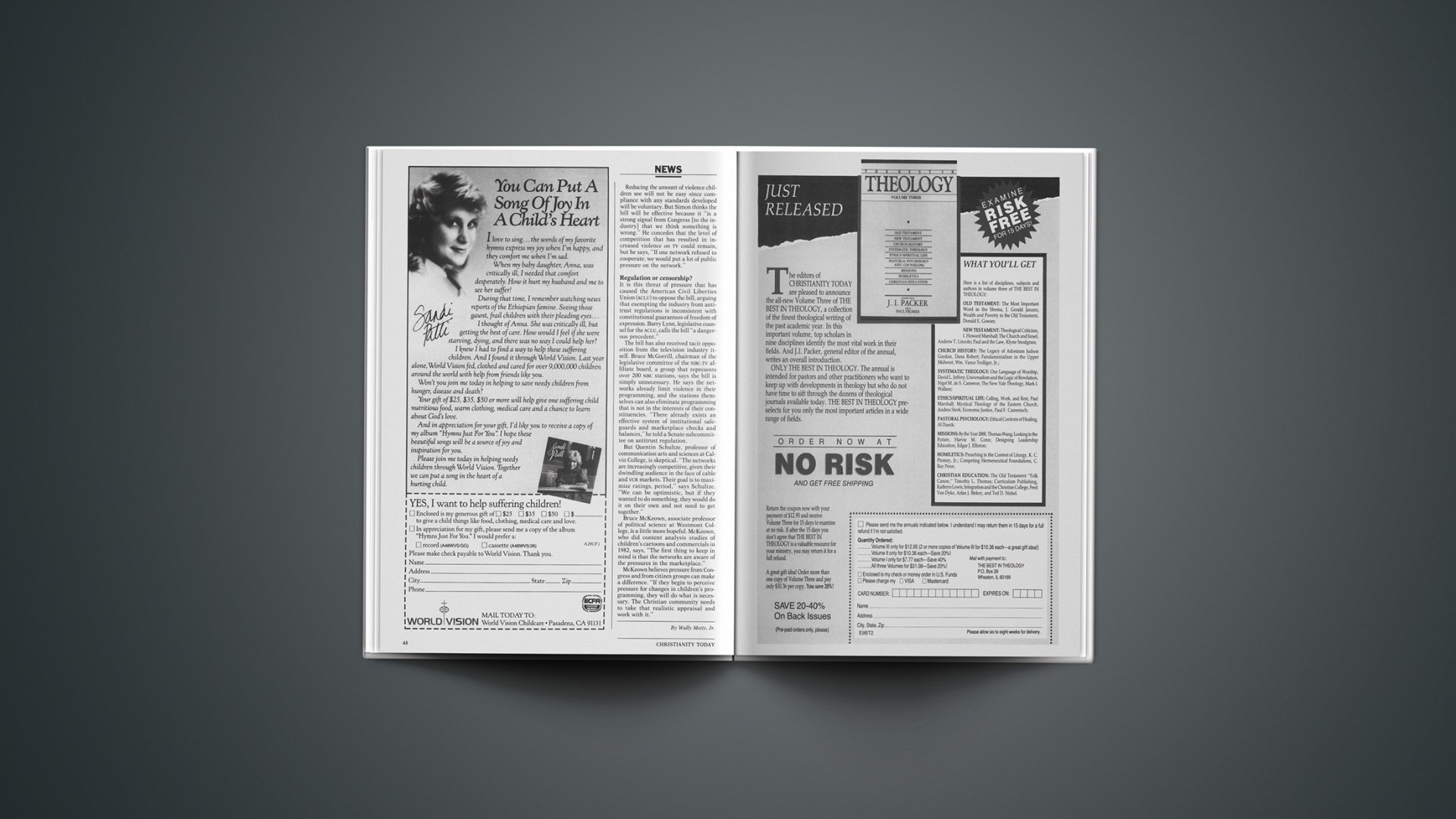Argentine-born evangelist Luis Palau has presented the gospel in nearly 50 countries. Palau, now 54, began as a teenager with street and camp meetings; he conducted his first evangelistic crusade at age 28. His ministry recently announced a 12-year plan to present the gospel to the major cities of India, in cooperation with a committee in India representing several Christian organizations. CHRISTIANITY TODAY interviewed the evangelist on this venture and a variety of topics.
Why have you launched such an ambitious, long-range evangelistic effort in India?
In our first campaign there, last November, I was overwhelmed by the intense spirituality of the people. I don’t mean they’re close to the gospel. But I believe those we generally call Hindu are truly honest in their spiritual search. A clear proclamation of the gospel, without Western cultural trappings, could produce a harvest without parallel.
You upset some people at Amsterdam ‘86 when you switched topics at the last minute and spoke on moral integrity and accountability. Did you have some idea of what was to come?
I had no knowledge of any specific situation, but I could see something coming. I sensed things were out of control here in the States. There was an unhealthy emphasis, for example, on numbers, people getting saved over the phone, or stories of experiences that didn’t sound real. And then there were the astonishing displays of luxury. Young evangelists in Latin America and elsewhere were imitating the Americans, saying the same phrases, wearing the gold chains. I didn’t want the evangelists at Amsterdam to follow the wrong pattern.
What are the fundamental causes of ethical failure among supposed men of God?
Presumably, public preacher types want more attention so they can preach the gospel to more people. One has to constantly examine motives. Money is part of the problem. Sometimes it’s greed, but not always. I once accepted a speaking engagement and paid my own way because the organization had no money. This was a big mistake. The Bible says the laborer is worthy of his hire. If we deviate from Scripture in a small way it can open the door to bigger abuses. I have a feeling that today some have a voice on certain platforms in the evangelical world not because of their God-given message, but because of the money they put out.
Have we learned our lesson or is there more failure on the way?
I’m not sure we’ve laid the ax to the root. The line about Christians shooting their wounded is getting old. Of course we shouldn’t shoot our wounded, but, as John MacArthur says, neither should we send them back to the front lines as if nothing had happened.
You’ve been conducting crusades for more than a quarter of a century. Has your view of the world or of your task as an evangelist changed significantly?
On the centrality of the gospel, not one bit. I’m concerned about justice and poverty. But I am persuaded that evangelism is the best and deepest social action because it changes people, and that’s what’s needed to change society.
When I started out I was afraid of working with people who did not verbalize their faith exactly as I liked. And I was confrontational; I would go to war on doctrinal issues. When John Stott spoke at Lausanne of being more tolerant, I thought he was getting soft. Now I see he was making sense. I would never compromise the gospel. But those who are secure in their faith have no reason to fear mingling with other people.
What is your view of Christian participation in politics?
Many think if we can just pass enough laws we can have a Christian nation. We’ve forgotten about winning people to Jesus Christ; there has been a massive letdown in evangelism.
Politics is a serious game. It is the nature of politicians to use people as long as they need them and drop them like a dirty rag the moment they don’t. There are lots of evangelicals in the States feeling like dirty rags.
What message would you most like to communicate to North American Christians?
I urge Americans to trust their brothers and sisters overseas. They are in the best position to decide how the gospel is best contextualized. I’m all for democracy; the more the better. And I believe that capitalism, of all the choices, is probably the best. But as believers, we must ask not how to spread capitalism or democracy, but how to spread the gospel.









